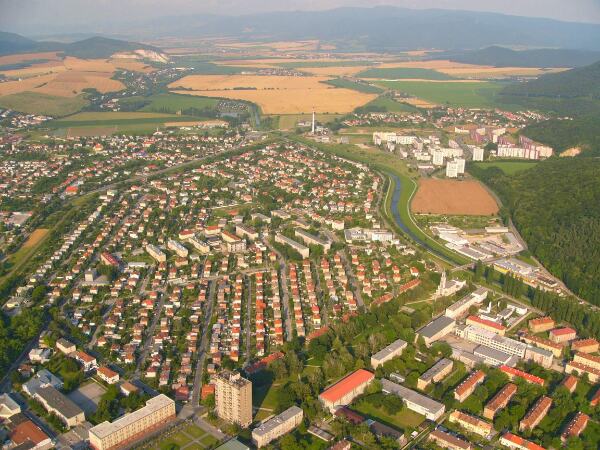Due overhaul
To keep pace with the pandemic-induced transformation in lifestyle the already unplanned urban settlements require imaginative upgradation

India's urbanization story has been much like a runaway horse, going in no particular direction, acting on periodic impulses and leaving haphazard trails of trodden spaces. Through the 1960s and onwards, we created just one world-class city of Chandigarh. As we had found the answer to all urban needs, our renewed pride triumphed over our inadequate talent, our dominant urban strategy was to create more Chandigarh clones with locally dictated touches. We built a Gandhinagar, a Bhubaneshwar, a Gurgaon (now Gurugram), a NOIDA and its add-on, a Greater NOIDA and a few more. To cater to the rising population pressures, many 'new' developments came up as extensions to cities or colonies on vacant lands, without taking into account local aspirations, culture and ways of 'Indianistic' living. Futuristic needs and imaginative planning were given a total miss. Making 'model' towns was our way of expanding city limits to accommodate a rising population. Social infrastructure was not even a reckoning in this haphazard real estate drive. Connectivity to rural India was ignored or minimally attempted, thus limiting urban expansion choices. Water availability, green spaces and cultural centres were not part of urban thinking at all. The results are all too evident and we are now lost without a plan to move forward in our urbanization quest. We tried a renewal mission and it made some incremental impact, so it got dressed up as the same thing in a smart cities bottle and has has been diverted from the mainstream for some time now.
The cumulative acts of omission and commission are coming home to inflict multiple impacts. Foremost is the health infrastructure in the cities and the non-city areas. The states' failures are too numerous to recount. Inadequate primary healthcare, inadequate public hospitals and, at the absolute basic level, hygiene and cleanliness have been dismal. Safety, at least in the cities of the north, has always been average. City management has been average and civic infrastructure always less than needed. We are not looking at the qualitative side as it is another different dismal story calling for its own narrative. The logic of inadequacy and bad planning will always take its exponential toll. If not immediately, then in the very near term, the consequences will unfold. Let us not forget and most importantly, the policymakers should not forget that the hapless citizen reaps what they sow. In the dire pandemic situation, these deficits are adding to the mounting tragedy of an avoidable loss of many lives.
The inexorable consequences of poor or bad decisions need to be embedded in the policymaker's psyche so that every future move is evaluated and thought through cautiously.
Our decision-makers are always on the wings of hope that no matter what stories we spin, gods will always be kindly disposed towards our land and our people. The icons and idols we seek to create have no value in the global context. We need to appreciate that we have to revere the places we live in and hence make constant efforts to sustain its hygiene, its aesthetics and its economic potential. We need wholesome cities. Not smart, not world-class but pure and simple, living and welcome spaces, cordial and welcoming to all.
The pandemic has changed the way of life as we have been used to. Even if any resemblance to life of the pre-pandemic times returns, it will be perhaps five years or so. Yet, many of the new compulsions will be here to stay. A large part of consumer businesses has had to move into the e-commerce zone. This has been convenient, easy, practical and user friendly. Electronic platforms, likewise, have been easy to access and handle. Digital literacy has grown even if standard literacy norms have stagnated. These are the features of our times that will henceforth be part of the normal for all urban living and further for rural areas. Cities will need far more open spaces than are contemplated presently in the madness of increased densities. Hygiene and sanitation will have to be raised and will subsume larger budgets. Land use will have to cater to public, civic and social needs rather than commercial priorities, as has been the case. Work from home, as the emerging need and functional norm, will require redesigning of living spaces to enable professionals and school children alike to access their working and learning time in an environment conducive to these activities. Connectivity will have to be given high preference for efficiency, ease of access and comfort and reliability. Both, optical fibre and physical linkages will have to be positioned on the top priority for development. In fact, every city will have to extend beyond its jurisdictional limits and we will need protocols to enable law enforcement without barriers.
So 'roti, kapda aur makaan' will need to be redefined in much more imaginative terms. Everything is about ease of doing things, convenience and ease of access. Physical activity should ideally be for health and fun and not to wait in queues to obtain civic amenities. Universalized access has to be the motto of governance. An illusion of these tangibles is a delusion in reality. Everyone can sense things as they are. Civic management has a very long way to go.
The writer is the now retired-Director of the India Habitat Centre. Views expressed are personal



